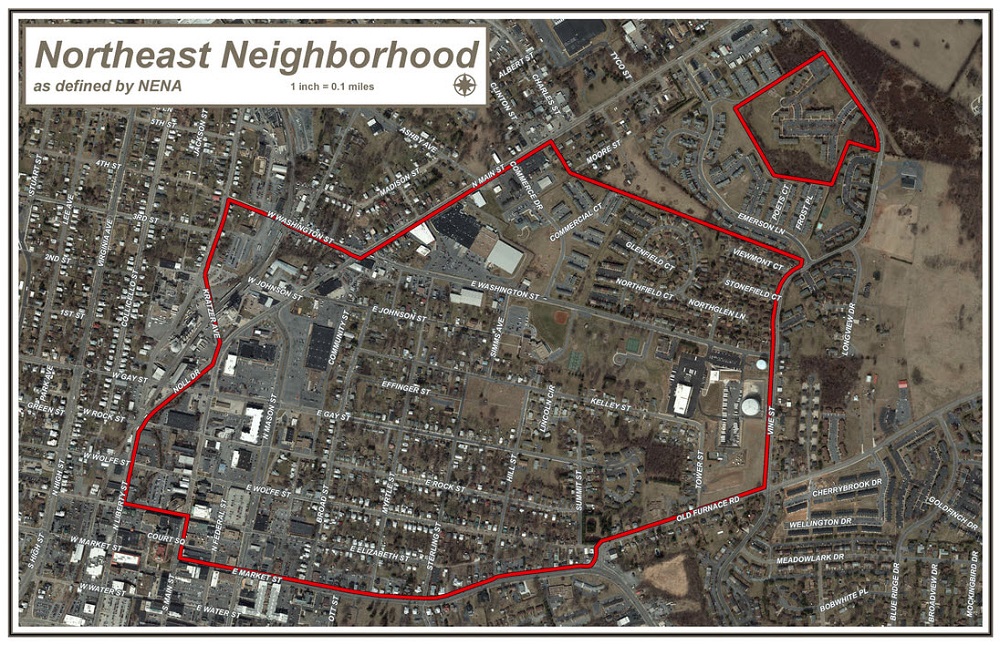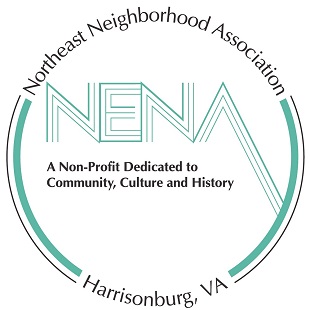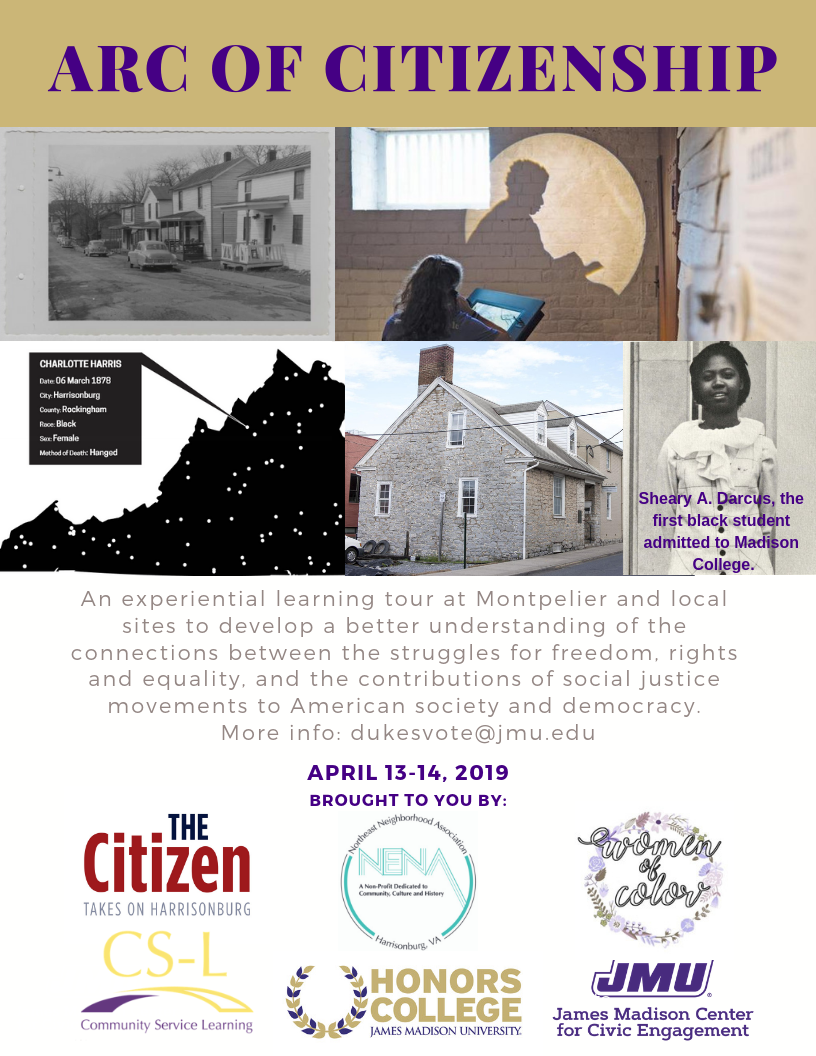Spotlight on engaged faculty work:
News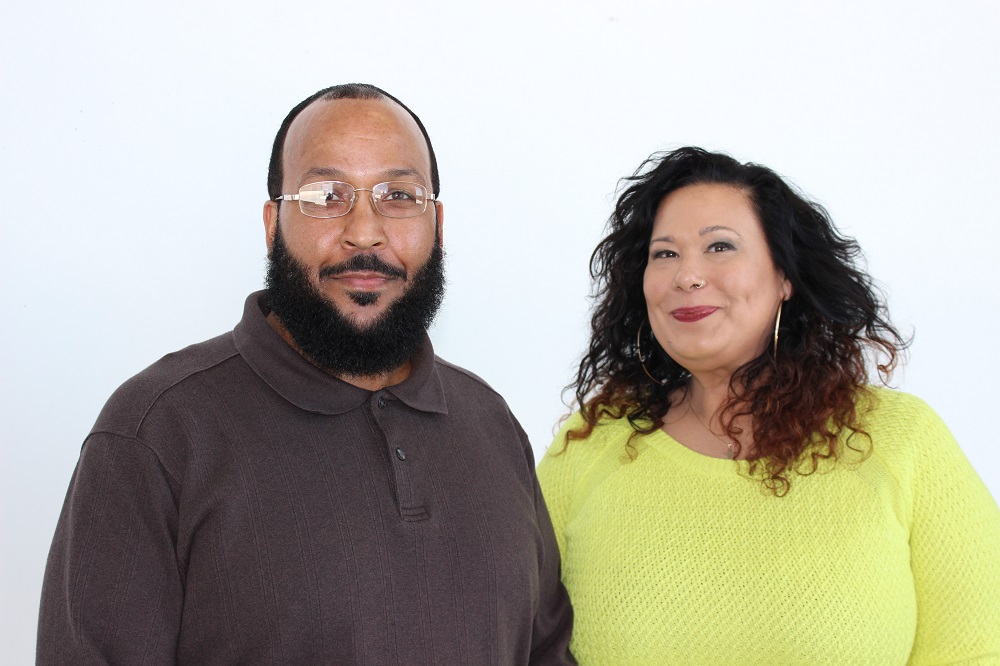
SUMMARY: JMU faculty member Susan Zurbrigg (right), collaborates with Steven Thomas (left), a Harrisonburg community organizer and advocate, through her involvement in the Northeast Neighborhood Association (NENA) and the Harrisonburg-Rockingham chapter of Coming to the Table. Zurbrigg is a faculty member in the School of Art, Design and Art History.
JMU Professor Susan Zurbrigg Leads Local Community and Civic Engagement
For newcomers to the JMU community, knowledge of the northeast neighborhood of Harrisonburg might be limited to popular eateries – like Kline’s Dairy Bar or Little Grill Collective – but one JMU faculty member and a community partner have been working to change this. Susan Zurbrigg, JMU Professor in the School of Art, Design and Art History, and Steven Thomas, local community organizer and advocate, want to raise awareness about the rich history of the northeast section of Harrisonburg and what once stood where people now eagerly stand to try Kline’s flavor of the week.
“We want to bring visibility to the stories of people that have been marginalized,” said Zurbrigg, who collaborates with Thomas through their involvement in the Northeast Neighborhood Association (NENA).
NENA is a nonprofit organization located in Harrisonburg that includes the historic Newtown community. Thomas has been actively involved with the organization for about 10 years, and Zurbrigg currently serves on the board.
“We simply work to try to address and meet the unique needs of the residents of northeast Harrisonburg, which is a community that's historically black and predominantly African-American,” Thomas said.
Thomas was born and raised in the northeast community in Harrisonburg. Thomas’ mother, Karen Thomas, is the founder and current President of NENA. She has been an advocate and organizer in the Harrisonburg community since the 1970s. Thomas said that though NENA was founded in 2005, it has existed in one form or another for well over 30 years.
Urban Renewal
Zurbrigg and the board of NENA have been working closely with projects like the restoration and renovation of the Dallard-Newman house, which will become a museum for African-American history in the Northeast Neighborhood, as well as the NENA headquarters.
Zurbrigg says there’s still work to be done in terms of acknowledging what she described as “the tremendous upheaval that urban renewal created In Harrisonburg”. As a result of urban renewal in the 1950s and 60s, the northeast section of Harrisonburg is “almost unrecognizable today, compared to what it was nearly 60 years ago,” according to the NENA website.
“When urban renewal took place, it really left a gaping hole. People of color were not able to then go and purchase homes in other areas because there was segregation. You couldn't move fluidly throughout the rest of Harrisonburg and find a place elsewhere. So there was this kind of purposeful funneling of African-Americans into public housing,” Zurbrigg explained.
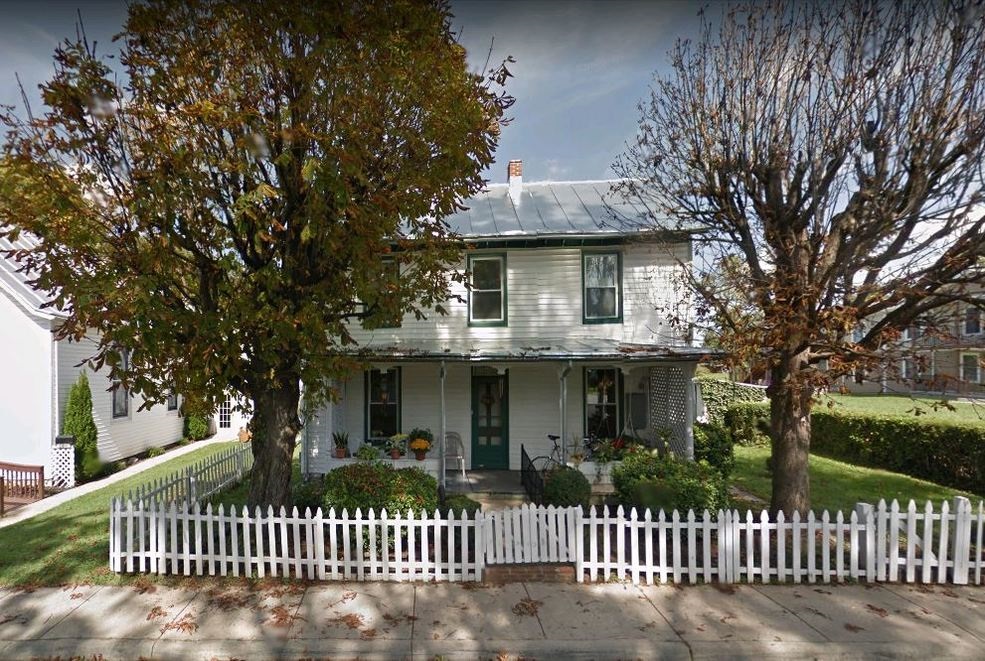 |
| The Dallard-Newman house (pictured above) has been an ongoing restoration and renovation project and will become a museum for African-American history in the Northeast Neighborhood, as well as the NENA headquarters. |
Coming to the Table
Zurbrigg and Thomas are also the co-founders and co-facilitators of the Harrisonburg-Rockingham chapter of Coming to the Table, a national organization with chapters in over 30 cities. The program started on the campus of Eastern Mennonite University as part of the Center for Justice and Peacebuilding. Thomas had been involved with Coming to the Table for about five years when he and Zurbrigg launched the Harrisonburg-Rockingham chapter in the summer of 2018. At the time, Zurbrigg was on the NENA board.
“Professor Zurbrigg obviously has an interest in African-American history and art and the black experience...It was simply natural for me to reach out to her and ask her to assist me in launching the chapter,” Thomas said.
JMU’s Engagement Efforts
Zurbrigg is originally from Chicago, specifically the Hyde Park area. Upon arriving in Harrisonburg, she noticed the town and gown aspects of JMU.
“There really wasn't this kind of natural involvement and engagement with one another. It was really important [for me] to also be a part of the Northeast neighborhood, as a woman of color and as a person of color.”
In Zurbrigg’s experience, she hasn’t yet seen the quality of partnerships she’d like to foster between these two communities (Harrisonburg and JMU).
“I feel like people [at JMU] are coming to the community when they need something from the community, rather than the offer to assist the community and ask for what the community would need, and what would be good for the community,” Zurbrigg said.
Although there is room for improvement, Zurbrigg and Thomas are hopeful about JMU’s future involvement in the community and NENA, and acknowledge steps that have already been taken. Thomas says he is pleased to see the scale of JMU’s outreach in the community, and named the Madison Center for Civic Engagement and Community Service-Learning as two examples that are doing outreach on a scale that hasn’t been done in the past. Thomas also expressed gratitude for Zurbrigg’s contributions and “the sacrifices that she has made to build these bridges…the work that she has put in and the things that she has done for us – we couldn't have gotten that assistance and that support anywhere else,” he said.
Zurbrigg was awarded the JMU President’s Award for Outstanding Contributions to Diversity in 2015. Diversity should be a priority, and Zurbrigg says that if there were more people of color at JMU - students, faculty and staff, then “much more of a natural kind of interest, correlation and dialogue would take place.”
“How your support structure is created is very telling about the kind of work that can be developed. Lived experience does matter,” Zurbrigg said.
However, she feels that there are ways in which every discipline can be involved in community work, and also “in the sharing of some sort of positive interaction – of hearing stories, learning stories, and lending to those stories.”
As JMU becomes more collaboratively engaged with the community, opportunities are created to invite community members and groups to engage with JMU. Thomas has been involved in and contributed to several events, programs and classes at JMU.
“I really am inspired and motivated and excited to see so many different departments here at the university now engaged in similar work to try to build…cultural [and] social bridges with different parts of the community,” Thomas said.
He has presented several times at the Annual African, African-American, and Diaspora Studies Interdisciplinary Conference at JMU. He was worked with groups like CFI, CS-L, and the Madison Center for Civic Engagement, as well as specific faculty within various departments like the School of Music and the JMU Black Lives Matter class, one of the first of its kind in the country.
“As the university has opened up its doors and taken the initiative to engage with the community, that's allowed me to be more welcome here…I try to be an active and engaged community member the same way we’re looking for students and faculty members to be actively engaged with the community,” Thomas said.
Civic and community engagement efforts have to continue to be a group effort, though, Thomas says.
“It shouldn’t simply be up to one department to develop programs of engagement or to try to engage community members, particularly different neighborhoods and communities of color in the city. It should be a shared responsibility throughout the university by multiple departments, multiple scholars and staff members, faculty members, etc.”
Zurbrigg shares the sentiment. “I think there's really been kind of a removal of the walls, so to speak, as far as what can happen with artists, activism, community engagement, academia…I feel that we're in this really wonderful place in which collaborations work really well…I don't see those walls necessarily needing to maintain themselves. I think that everybody's stronger if they're collapsed,” she said.
Getting Involved
Zurbrigg and Thomas welcome JMU participation in NENA and Coming to the Table. NENA meets on the third Thursday of every month at the Lucy Simms Center. The Harrisonburg-Rockingham chapter of Coming to the Table meets on the fourth Thursday of each month at the NENA Community Center. Both meetings are open to the public.
“We welcome residents, neighbors, everyone – students as well – to come and to engage with guest speakers and simply bring their concerns or whatever their thoughts are about how to better develop and improve the community,” Thomas said.
Learn more about NENA by signing up for the Arc of Citizenship!

